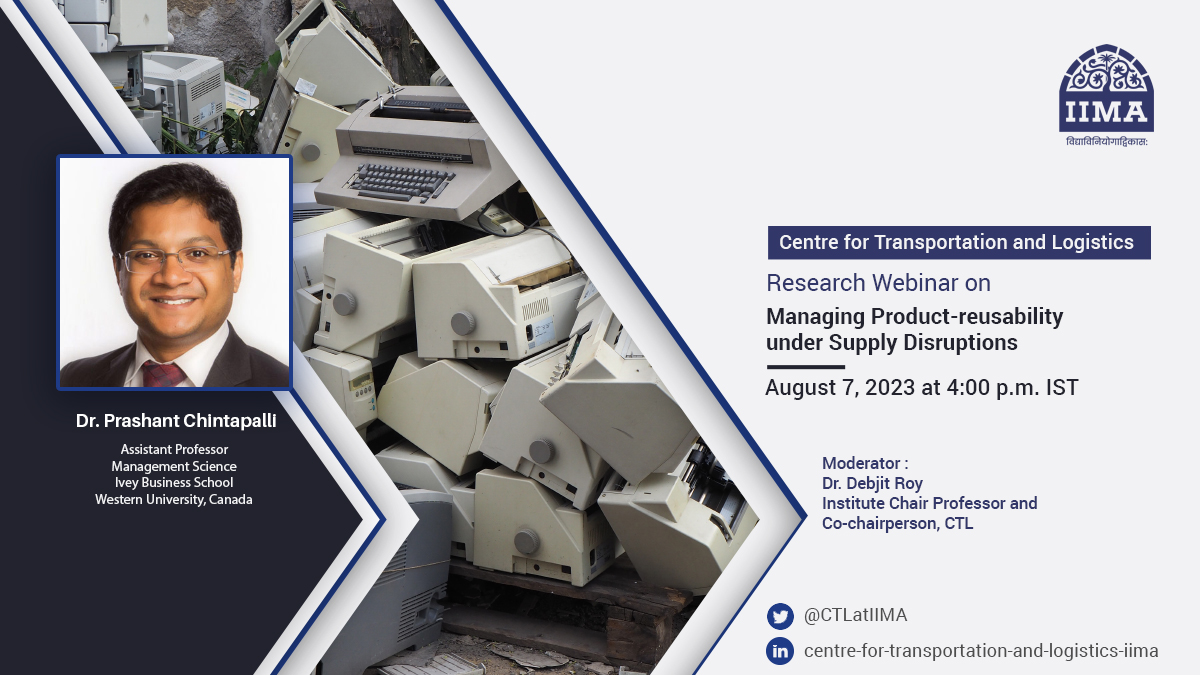
07/08/2023 - 07/08/2023

Abstract:
We model and analyze product-reusability (executed through refurbishing), in the presence of supply disruptions. In this setting consumers could trade-in their used units for new ones and firms can attract consumers to do so through a trade-in fee. We develop a discrete-time Markov chain model to determine the degree of product-reusability, price, and trade-in fee that a firm should choose in steady state, when it can refurbish the trade-ins by delegating them to an external refurbishing facility.
Our analysis of this model shows that increasing product's reusability through better product-design is beneficial as the likelihood of supply disruption increases to a certain extent. However, increasing reusability further, when the disruption probability is high, could hurt a firm's profit due to increased design costs and decreased revenues. We show that as the likelihood of supply disruption increases and when sufficient number of customers trade-in, the firm exclusively chooses either a risk-absorbing strategy (i.e., absorb supply risk by increasing product-reusability) or a risk-transferring strategy (i.e., transfer supply risk to customers by increasing prices).
The choice between the above two strategies depends on the magnitude of the supply disruption probability. By thoroughly analyzing these trade-offs we obtain the firm's optimal decisions and examine how these decisions are influenced by various problem parameters.
Finally, we obtain the optimal trade-in fee that firm should offer to customers and show that it benefits the firm to increase the fee as the likelihood of the supply disruption increases.
About the Speaker:
Dr. Prashant Chintapalli is an Assistant Professor of Management Science, Ivey Business School, Western University, Canada. He holds a PhD from the UCLA Anderson School of Management. His research interests lie in analysing operational issues faced by businesses and policymakers in emerging economies, with a special focus on food supply chains.
